|
“‘This will be catastrophic’: Maine families face elder boom, worker shortage in preview of nation’s future,” from The Washington Post, could be a description of a dystopian movie: it’s not. This is the state of State of Maine, which is the harbinger of things to come for the rest of these 50 United States. We need to listen to this alarm.
We’re facing a demographic dilemma: not enough young people to fill all jobs, even those outside of elder care. We need them now! Where do we get them? We can’t hire them because they were never born! Thus, current workers remain on the job long after it’s safe or appropriate. Results include accumulated injuries to workers who keep doing injurious jobs. Even the field of healthcare can’t find enough workers or volunteers. The State of Maine has learned that there is no one available to fill home care jobs. There is no one to fill care facility jobs either. Professional fields have the same problem; many of the number of nurses and doctors are now older and there are not enough of them it is and there’s no one to replace them. Medicaid pays far less than other employers, drawing the few workers away from elder care. However, simply raising wages won’t help if there are not enough people to hire! Maine is already experiencing the results, some facilities closed altogether. Others closed admissions for months due to too few staff. No vacancies in care facilities means families must place their loved ones wherever they can. A loved one far away means a l-o-n-g commute to visit. Younger, disabled people also get caught in this care-crunch. If no one is available, some adult children try to fill the gap. Those care gaps further pressure the few remaining working adult children. Keep this number in mind: *By 2030, 1 in 5 Americans will be over 60. *The number of seniors will DOUBLE between 2015 and 2050. *The senior population over 85 will TRIPLE in that same period. **We will need 7.8 MILLION new people to fill these jobs. Since we didn’t give birth to them; where do we get them? This isn’t as riveting as a news story as a fire, or a shooting, that’s the problem. The numbers of affected families are there, but they aren’t collected (aggregated). This problem is spread everywhere. We’re in a presidential campaign yet no candidate is talking about this national problem. Why? This demographic dilemma is happening one family at a time: Your family is next.
0 Comments
I’ve spent most of my career working with seniors and now I’m a senior. That position allows me to see certain situations with two viewpoints, professional and personal. A recent incident allowed me to glimpse a common situation families experience with seniors but from the internal viewpoint.
The typical scenario goes like this; family member does something they think would help the senior. They do it without discussing it with the senior; just present their contribution. The senior is far from appreciative. Instead, they are upset, angry, or dismissive. The family member reports that they feel wounded, or frustrated. Families say; “I was only trying to help!” Why didn’t the senior see the value? Ask yourself; “When I do things for my senior, am I doing it with them or to them?” I got to experience this myself. Recently, I visited my children in New York. We rented a B&B which turned out to be awful! After confronting the agent and securing a refund, we had a sad dinner. It was late at night and the children were on their phones looking for lodging. We trudged to the hotel; I checked in and went to bed. Unbeknown to me, the children believed the hotel was “dodgy”. They stayed up to late to book another hotel! Now, I was on the hook for a bill I knew nothing about! I woke up to a call from my daughter-in-law with this news. I had not yet showered, no breakfast, and now I’ve got to deal with this! I strenuously objected. Insight came to me in the shower (which was running very s-l-o-w-l-y). Three words stood at the center of this conflict: for, with, and to. My children thought they were doing something for me by booking another hotel. It didn’t feel like that to me. Is that what’s going on internally when the senior objects? Does for take away another piece of their autonomy? They didn’t do it with me. They kept silent instead of sharing their concerns about the hotel. They made financial assumptions instead of asking me questions. Their decision put me in a money bind. I felt as though things had been done to me. Is that what’s going on internally when seniors object? Are they really mad about the item or the way it came to them? Do families need to take time to walk the senior through the process (preferably after breakfast) or find some way to engage them? I believe that for is a good thing, in the combination of with, so it doesn’t feel like to. P.S. The next hotel had a better shower. When families gathered on Thanksgiving day, some realized that their senior was not the same as last year. Families often respond by doing internet research. The internet is a good first step. However, some sites make outlandish claims. I saw one that offered a treatment that “cured Alzheimer’s”. There is no cure and some of these sites can offer dangerous suggestions.
Here are a few reputable sites that offer reliable information: Alzheimer's Association. This site also has a page devoted to explaining the different types of dementia. It also lists other physical conditions or environmental conditions that can look like dementia. American Society on Aging. It can feel encyclopedic in size. The society has done decades of research and offers reliable information. It’s a good second step. AARP offers many programs and information for families as well as seniors. Each state has a chapter with offices in each area. Look up your state to find help in your area. And Senior Sidekicks offers a course; Preparing to Parent Your Parent, to prepare families for the practical issues they will face as they become caregivers. Contact us about teaching this course in your church or at your job. Call (217) 787-5866 or email us for more information. How do you know when this old house is the wrong house now? Seniors who are reluctant to move may refuse to leave. One senior refused to leave her old neighborhood even though the neighborhood had changed. As she left for church one morning, she was shot in the heart by a stray bullet. Waiting to move until there’s a crisis means the senior loses control of the move. The senior who was shot was moved by others. They didn’t know what she had wanted to take with her; she lost some things which made her very sad. Taking your senior on a decision-making journey helps them to see for themselves that things have changed. A senior realized a move was necessary when she needed more medical care. The house by the lake was too far away. She spent anxious moments waiting for first responders to arrive when she was in need. A house is not a home, even though some seniors think they’re the same. One senior wanted to keep e-v-e-r-y-t-h-i-n-g, including the china hutch. She measured her new apartment to show it would fit. However, the movers couldn’t get it through the front door. Perhaps it doesn’t fit after all. What else won’t “fit”? We move into a house and we make it a home. What’s really important to your senior? It’s probably not the kitchen sink or the screen door. Important things, like photos and mementos, can go anywhere. These can go to the next housing phase. Senior won’t lose the important things: their history. One family referred to the next phase of housing as a new “home”. Their senior dug in her heels and refused to do anything! The family called for my help. I asked the senior to define the word “home”. She described an early 20th century county old age home! I explained that the last of those had been torn down years ago. I offered her a different option; her own apartment with indoor mail box and a grounds crew to mow and shovel. She was willing to learn more. How has your senior’s old neighborhood changed? Sometimes they need to see it for themselves. I took my Grandfather out to his front porch. Together we remembered the old neighborhood. He talked about the people who once lived there, the streetcar track, and the horses stabled at the end of the street. Each time I asked him, “Where are they now?” At the end he was silent for a moment. Then he said;”They’re all gone”. I offered that if all the people and horses had left, maybe it was OK for him to move on as well. “I like my front porch!” my Grandfather said emphatically. “You’re right; your next place MUST have a front porch!” I said just as emphatically. Then my grandfather pointed to the two trees in the front yard. “I planted those to shade the house”, he said. “They do a great job”, I told him. “100 years from now, they’ll stand as a testament to your efforts”. Referring to changes as; the next phase of life, works better than to call it; giving up your home. One of my clients was forced to move when she was robbed at home, twice! Even so, she was very upset about leaving. I took her for lunch and a tour of a senior apartment building. She gazed in awe at the beautiful chandelier in the lobby. She did a double-take when a uniformed waiter asked for our luncheon order. After lunch, we toured several apartments. As we drove back to her house I asked her what she thought. “It looks so nice”, she said, “When can I move?” Another senior had been a great gardener. He was unhappy about leaving his garden. I contacted a newly-constructed facility and asked about gardening plots. On our tour, they pointed out future space for residents’ gardens. The senior explained that the area had too much shade and offered another part of the yard. Since the plots were not yet set, the staff agreed to consider his idea. He would be their gardening consultant! He moved. Seniors may see a change of housing as a loss of who they used to be; show them how they keep their interests, their memories and mementos. If you would like our Free Has Your Senior Outgrown The House? Checklist please check mark your request below, and submit. One of my patients recently complained. I asked her what her doctor said. She told me she had forgotten to tell her doctor. She told me that she had become used to the problem and “accepted” it. Many senior-related articles advise writing down symptoms and questions before visiting the doctor. Good advice; as far as it goes. It’s the stuff that falls off the radar that could be the most important. The doctor needs information from the patient or the patient’s advocate. That information is the basis to decide which questions/tests to pursue.
What kind of information doesn’t get to the doctor?
Age is a stage of life, not a diagnosis. Sadly, some seniors think is a diagnosis. Seniors may accept pain or changes in their bodies as “just getting old”. Pain is a symptom. It’s our body’s way of telling us (at any age) that something isn’t working. Please take your senior’s complaints seriously, even if all they say is; “I don’t feel good.” That complaint is a place to start. Repeated complaints indicate a persistent problem. I use three points to examine complaints: frequency, intensity, and duration. How often do they complain? How long have they complained? Do they report things are worse or better than earlier? Doctors analyze these kinds of information to help them decide what questions to ask next. Please complain; it’s helpful.
Some seniors believe they shouldn’t complain. You may need to explain to them that this is a report on their health rather than an annoyance. Some seniors complain without words. Does the face contort? Does the voice tighten? Do they seem more irritable at certain times of the day? Something’s going on. Ask them to please complain to you out loud. Earlier this year I knew something was “off” within me. I went to the doctor but the lab tests were inclusive. Nevertheless, I persisted. I tracked what I felt and when. I brought this information back to the doctor and insisted on considering other options. Eventually my pattern was clear enough to prompt the doctor to ask other questions. I received a new medication and it worked! I complained, but really I was advocating for myself. Some seniors cannot self-advocate. That’s why caregivers are so important. Please persist if the first treatment doesn’t work. Please complain for them. By the way; this is a portion of my course; Preparing to Parent Your Parent. Senior Sidekicks can bring this course to your church at a time convenient to you. When someone advises you to, “take care of yourself”; that doesn’t explain how. Elder caregiving is so new that some methods are still under development. However, we know some things that work and some to avoid. Self care does not mean a day at the spa. For many caregivers such a day would be out of reach financially or out of time to devote to a spa. Therefore, plan to care for yourself in moments, not hours. Think about your life like your heart; it beats all the time. Actually your heart takes a tiny rest between each beat that allows it keep going. When you care for yourself in moments, you pause and continue.
Try these ideas. Put up a sign saying, I NEED A MOMENT, to remind yourself to pause. Put up other signs family can see to remind them that you might need a moment before you can respond to their requests. Is the person in need bleeding or on fire? If the answer is no, then it’s OK for you to take a moment. It’s OK to train your family to allow you to do so. It’s OK for you to ignore repeated pleas for your attention (for a moment). Training takes time but you’re worth it. What do you do in that moment? Be sure you are safe. If you’re up on a ladder, get down first. Focus on something blank, like a wall or the ceiling. Breathe, deeply, through your nose, hold and count to 3 or 4. Let your breath out through your mouth but slowly; 1-2-3-4. Now, if you can afford the time, try looking at something peaceful; out a window, at a picture, or at some memento that is meaningful to you. Breathe again the same way. Many caregivers respond with; “I don’t have time to …” You’re right, time is at a premium. Most caregivers find themselves in that role at the same point they also have the house-the spouse-the kids-the job-the pets and MOM! You have a lot on your plate. Sometimes caregivers believe they can wait until they have time. By waiting until later, the damage from lack of self care will have done its worst. Undoing damage is much harder. The best intervention is prevention. Prevention comes in bits of time you claim now. Suppose you actually have a whole hour to yourself. It’s a gift! Ask yourself, “What refreshes me?” Notice I didn’t say what can I eat nor where can I sit down? Some caregivers eat to cope with stress. We need nourishment but not that way. Rhythmic movement, like walking, can help us feel less worn and is surprisingly refreshing. If you can’t go far; walk around the house or around the block. If you live in an apartment building, walk in the hall. “Go get the mail”, that errand will buy you a few minutes. Try to set a self care routine just as you have set other routines with child care or at work. Routines help us get things done without doing us in. Some things to avoid include sugar and alcohol. The stress hormone, Cortisol, takes sugar and converts it into weight around your middle. Sugar may not be sweet; baked goods convert to sugar. As part of a balanced meal they’re fine; as a snack, not so much. Large amounts of food can have a numbing effect; like a Thanksgiving dinner. When we feel numb, our minds seem to turn off. When you see you have time and turn to the refrigerator; ask yourself why are you eating? In a similar way, alcohol can create a numb feeling. We believe we’re relaxed but a caregiver’s immune system is more vulnerable and needs extra protection that alcohol doesn’t provide. Alcohol is also a depressant, which won’t help caregivers. So how does one “turn off” the constant “list-making” that goes on in the caregiver’s mind? Try other things. Try relaxing teas like Passion Flower, Elder Flower or Chamomile. Try playing some relaxing music that’s meaningful to you. Try a rhythmic movement “dance” (try it with your partner). Try a hot shower or better, a hot bath. Try placing essential oil of lavender in your bedroom. All of these set the stage for relaxation. Develop your own mediation or routine to think about at bed time instead of a to-do list. There are also tapes available. So self care comes in moments you claim as your own. To learn more ways to cope, take our course: Preparing to Parent Your Parent. Caregivers experience a jolt when confronted by their bosses about changes in their job performance. For some caregivers, these issues are the first sign that something has to change: now! Perhaps they didn’t realize that they were regularly tardy or missed important meetings. Did they know that they also missed important details in doing the job? Your boss noticed.
Most bosses don’t know what to do to help the caregiver with those issues. They just want employees back on track at work. Senior Sidekicks knows how to help. Take our course Preparing to Parent Your Parent to get back on the job track. Why take this course; because you must handle caregiving differently. In just 5 classes, you will learn ways to cope with and better manage caregiving. Senior Sidekicks brings this course to you; at your church or club. Senior Sidekicks teaches Preparing to Parent Your Parent at your convenience; evenings, weekends, lunch hours or days. One low price gives you 5 classes, a manual, and chance to bring your significant other for half price! This course shows your boss that you’re tackling this problem and wrestling it to the ground! Call Senior Sidekicks today at 217-787-5866. If you developed symptoms such as poor sleep, changed appetite, or more serious conditions, you’re not alone. According to The Executive Summary: Caregiving In The US 17%-35% of caregivers report poorer health.
Caregiving creeps. At first it’s the occasional errand. Then it’s dealing with financial matters. Other senior caregiving issues pile on; unpaid bills, medications ignored, and inaccurate reports about doctor appointments. You find that you’re monitoring medications, and accompanying your senior to the doctor. All the while, there are other parts of your life; your spouse and children, your job and home. Trying to do all these tasks as a caregiver while also keeping up with your own life becomes a monumental job! Something has to give. Where are you in all these duties? Many caregivers believe they can take care of themselves “when they have time”. Caution: caregiving you have no more time. Self care is vital to preserving yourself, your family, your job, and your sanity. Senior Sidekicks’ course; Preparing to Parent Your Parent explains why caregivers need to do self-care. Senior Sidekicks knows how busy you are. This course is convenient; delivered to your area: your church. We offer it at convenient times; evenings, weekends, or lunch hours. You receive 5 classes and a manual for one low price. If you bring your significant other, they pay half price. Call Senior Sidekicks today to learn more. 217-787-5866. We have seen how caregiving creeps until it fills one’s daily life and affects one’s job. What about the people in your immediate family? Do your children behave differently? Are they withdrawn or act out? Have you received school reports about problems? We expect sibling rivalry when a new baby comes home. What if the one who demands the parent’s attention is not a baby; it’s Grandma? That’s not what most caregivers anticipate. Yet, a distracted parent is still a distracted parent.
What about your spouse? The marriage vows cover sickness and health, richer or poorer. They don’t include vows to care for your parent and mine. Perhaps we should add new vows should since caregiving now involves 43.5 million people; according to Caregiver.org/Statistics and demographics. That number will continue to climb! Most couples haven’t considered caregiving the same way they considered where they would live or how many children to have. Yet, caregiving affects many households as well as individual caregivers. Isn’t it time to address caregiving together, just as couples do with other life decisions? Senior Sidekicks’ course, Preparing to Parent Your Parent, is designed to get spouses into working with each other. Those who enroll can bring the spouse at half price. Together, you will learn about handling various parts of caregiving and compile a manual for future reference. You can arrange the course for a location near you; like your church. Senior Sidekicks will deliver the course at times convenient for both of you; evenings, weekends, lunch hours, or days. Call us today at 217-787-5866. |
Author "A Senior Moment" is written by Ms. Sara Lieber, owner of Senior Sidekicks. Ms. Lieber has over 30 years of experience in senior care. Archives
March 2024
Categories
All
|



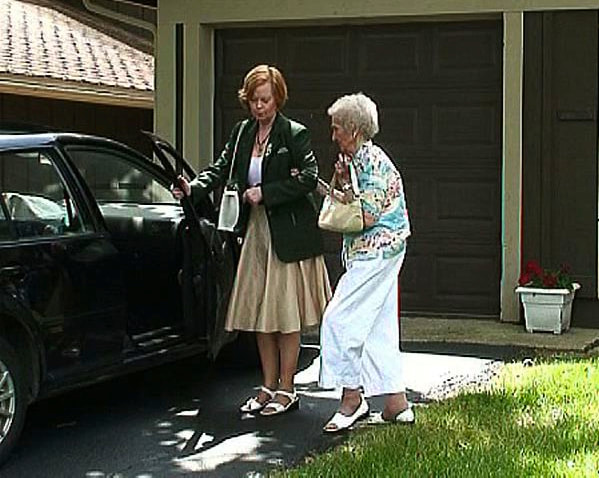
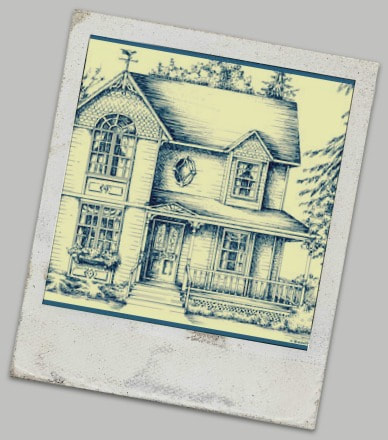
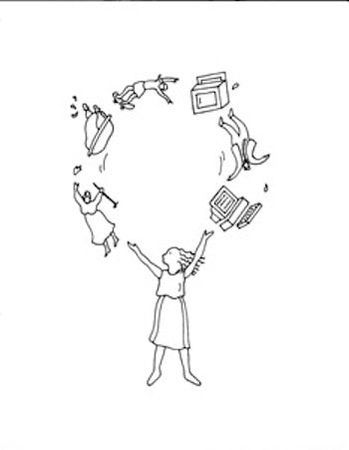
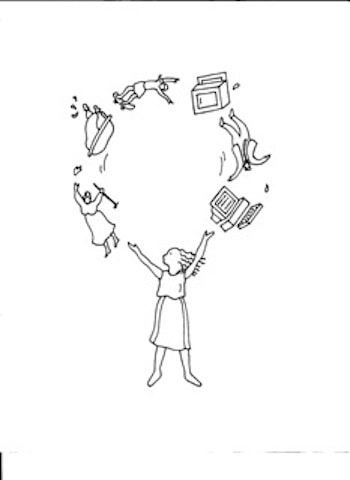
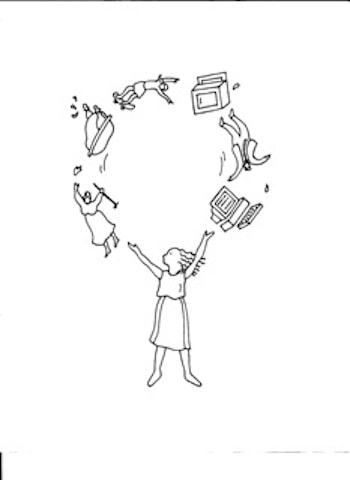
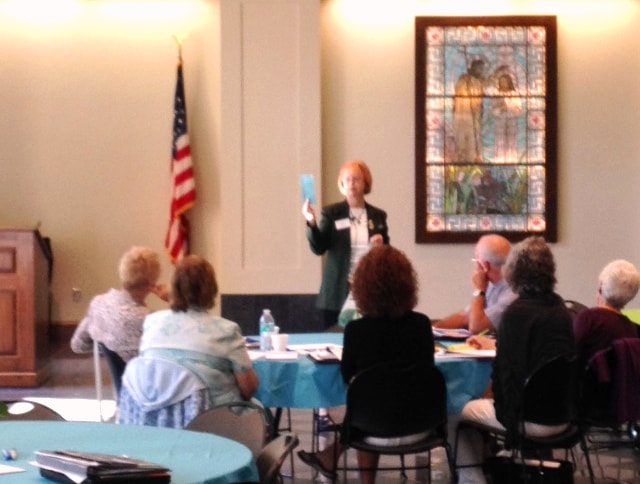
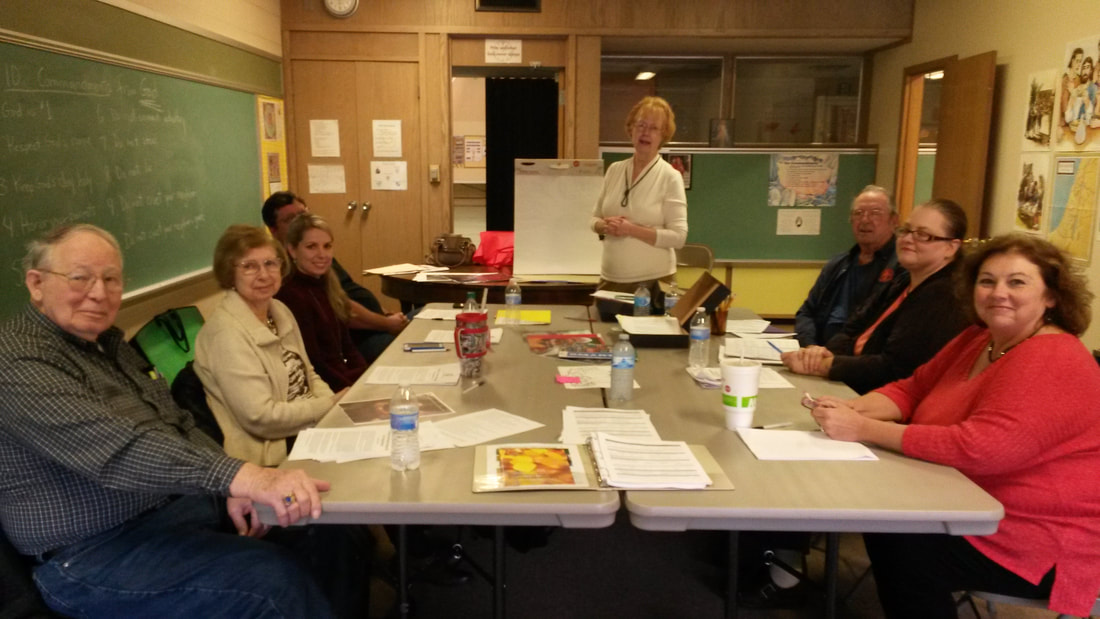
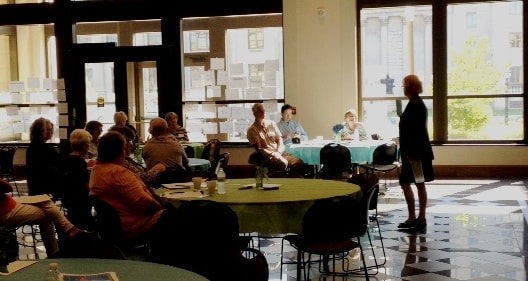
 RSS Feed
RSS Feed